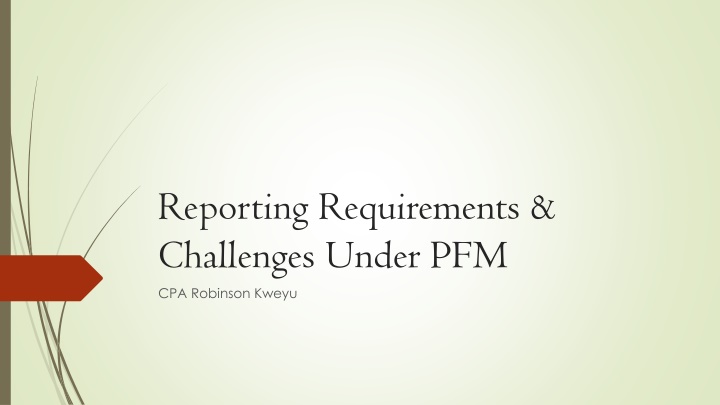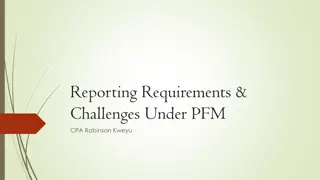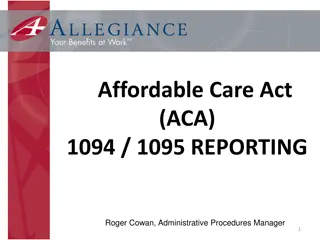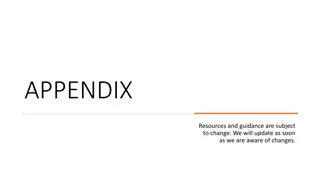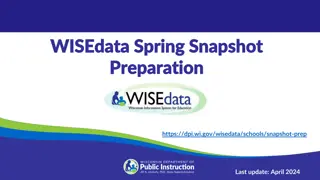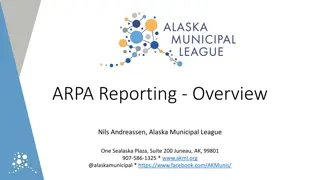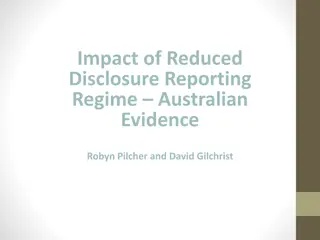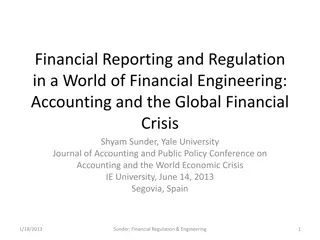Public Financial Management: Reporting Requirements and Challenges
Public Financial Management (PFM) involves rules and processes used by the government to mobilize revenue, allocate funds, and more. This content explores the reporting requirements and challenges faced under PFM, highlighting key principles, legal documents, and institutional players involved in the process. It emphasizes the importance of openness, accountability, and public participation in promoting an equitable society and the prudent use of public resources.
Download Presentation

Please find below an Image/Link to download the presentation.
The content on the website is provided AS IS for your information and personal use only. It may not be sold, licensed, or shared on other websites without obtaining consent from the author.If you encounter any issues during the download, it is possible that the publisher has removed the file from their server.
You are allowed to download the files provided on this website for personal or commercial use, subject to the condition that they are used lawfully. All files are the property of their respective owners.
The content on the website is provided AS IS for your information and personal use only. It may not be sold, licensed, or shared on other websites without obtaining consent from the author.
E N D
Presentation Transcript
Reporting Requirements & Challenges Under PFM CPA Robinson Kweyu
PFM Defn Defined as the sets of rules systems and processes used by the government to mobilise evenue, allocate funds, spend, account report and audit of public financial resources
Legal Documents Governing PFM The Constitution PFM Act 2012 PFM Regulations 2015 PPADA Public Audit Act Treasury Circulars Government Manuals and Guidelines
Institutonal Players In PFM National & County Treasury Controller of Budget Auditor General Commision on Revenue Allocation National & County Assembly Public Sector Accounting Standards Board Central Bank of Kenya Public Procurement Regulatory Authority
Principles Of PFM Openness, Accountability and Public Participation Promote Equitable Society Burdens & Benefits of Resources and Public borrowing shall be shared equitably between present & future generations Prudent & Responsible use of public resources Responsible financial management & Clear Fiscal reporting Article 201
Openness Accountability & Public Participation At the heart of democracy are the above principles they imply that decision making at all levels is as accessible and accountable as possible to the general public , reasons for decisions taken or not taken are known and those taking the decisions assume responsibility for them and are ready to accept personal consequences when such decisions are subsequently shown to have been wrong. Dr. Hab
Prudent & Responsible use of public resources We need to ensure due diligence, shrewdness, skill, good judgement, caution & circumspection when fulfilling our mandate in service delivery to the public, qualified customers should be served fairly and according to need
Reporting Requirements IN the PFMA Section 149 Outlines role of officers designated as Accounting Ofiicers and their accountability to the county assembly in management of financial resources including (2b) ensuring that the entity keeps financial and accounting records that comply with PFMA Section 165 requires the same to submit annually accounts pertaining to it. Section 157 empowers the CEC Member responsible for Finance to Designate in writing persons to be Receivers of Revenue Section 158 requires the Receiver of revenue to provide Quarterly statements to the County Treasury with copies to National Treasury and Commission on Revenue Allocation as per the prescribed format issued bu PSASB Section 163 County treasury mandated to consolidate the annual financial statements of all county entities by 31 Oct and submit the report to the Auditor General with copies to the National Treasury, COB, and CRA
CONT.. Section 164 county government entities are required to prepare financial statements with respect to the entity by 30thSeptember each year and submit the same to the auditor general with copies to the County Treasury, COB, and CRA, In case of a county corporation the same should be forwarded to the CECM for Finance by the CEC responsible for the entity Section 166 requires county treasuries to consolidate quarterly reports of county government entities a month after the end of the quarter, the same having been prepared 15 days after the end of the relevant quarter and submit to the county assembly with copies to the National Treasury, COB, & CRA. Section 81 of the PFMA requires all public entities to submit their annual accounts to the Auditor General for Audit by 30thSeptember. Article 229 (4) of the Constitution requires Auditor General to submit audited financial statements to National Assembly within six months after year end (i.e 31st December).
